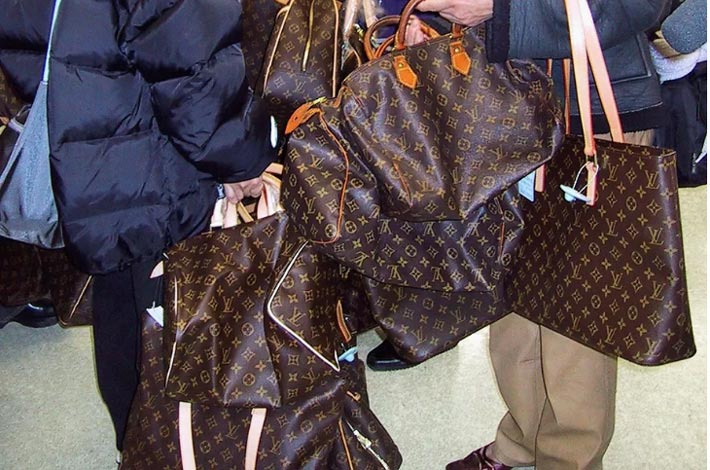Since the dawn of the internet, online luxury shopping has been dogged by online luxury counterfeiting, especially on sprawling sites like eBay and its Chinese equivalent, Alibaba-owned Taobao.

Since the dawn of the internet, online luxury shopping has been dogged by online luxury counterfeiting, especially on sprawling sites like eBay and its Chinese equivalent, Alibaba-owned Taobao.
Finally, the retailers and the brands are teaming up. Alibaba Group announced Monday that it’s forming a task group of 20 luxury brands to combat the proliferation of counterfeit sales. According to Women’s Wear Daily, the group is called “Alibaba Big Data Anticounterfeiting Alliance” and includes Louis Vuitton, Shiseido and Swarovski.
The alliance is the latest positive move in Alibaba’s protracted struggle with brands. In May 2015, Gucci, Yves Saint Laurent and several other Kering-owned brands sued Alibaba for trafficking in counterfeit goods and trademark infringement. In April 2016, Alibaba’s entry into the International Anti-Counterfeiting Coalition prompted companies like Michael Kors, Tiffany & Co. and Gucci America to quit, leading to Alibaba’s suspension just one month later.
It’s not just Alibaba. As even the most casual online shopper knows, the internet is littered with questionable sites peddling designer goods with suspiciously low price tags and vague sources. Fake bags were always a mainstay of New York’s Canal Street and shady trunk vendors in Los Angeles, but the internet has made buying fakes immeasurably easier — or harder to avoid, depending how you look at it. Online, community forums and comments sections express doubt and concern over the authenticity of certain products and sites.
It doesn’t help that the quality of fake bags has only gone up in recent years, making it sometimes impossible to tell the real from the counterfeit.
source: www.racked.com
